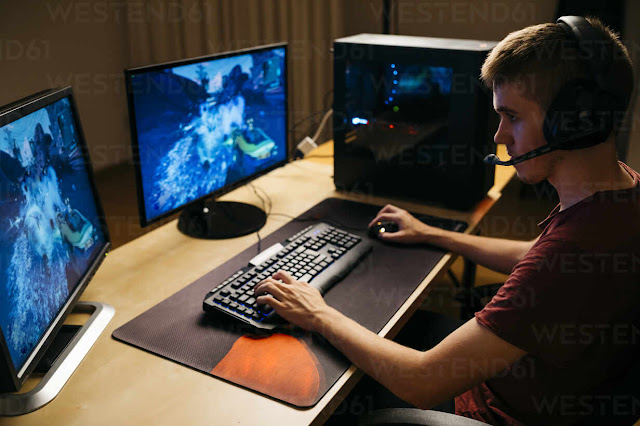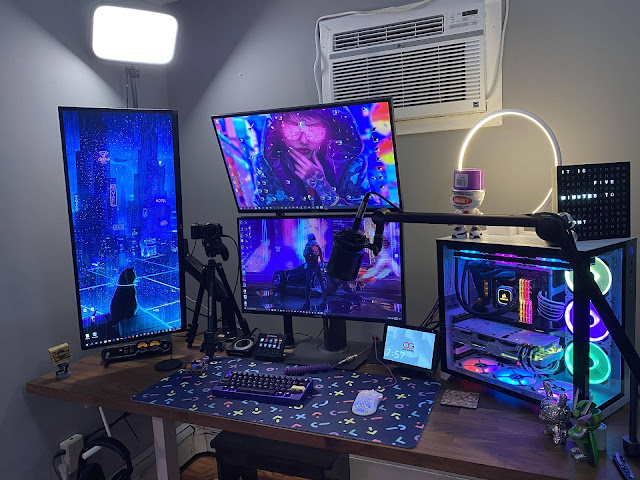Will the widespread proliferation of laptops eliminate their desktop counterparts? Do these small folded devices meet all the user's needs? Or are desktop computers yet to lose their sparkle, and some users are still clinging to them because what is not in the laptop?
Sven Schultz, of the German magazine Bild Computer, says that "it is clear that laptops currently dominate computer markets to the point where they constitute three-quarters of new devices."
The German expert explained why laptops were the most comfortable for many users, although desktop computers had not yet lost their glamour and could not be seen as obsolete devices.
For his part, Matthias Velendorf, of the German journal Inside Digital D, says that desktop computers represent more than just huge computing boxes, and they are currently available in new types of suitable sizes with elegant interfaces. "
Gaming enthusiasts
Wolfjang Pauler of German specialist magazine Ship considers that "gaming fans usually rely on desktop computers, as well as users who prefer computers more efficiently and with less noise".
Powler attributed the reason for this to the fact that desktop computers are not overheated, such as in laptops, since the fact that the former is larger allows for the possibility of installing major fans, which lower the temperature to obtain the same cooling performance for small fans installed in laptops.
Schultz added, "It comes from fast processors that are hotter and graphics cards need power of 300 watts or more, and there is insufficient space for all of that in skinny computers."
Upgrade of gear
Besides the more easy cooling function, desktop computers have the advantage of switching chips, or what is known as upgrading certain parts of a computer, which is not available in laptops; Since the processors are not installed by sockets, hence they cannot be replaced, as well as many components form part of the main panel and cannot be separated from them.
RAM cannot be expanded or replaced in laptops, and even if possible in some cases, it needs experienced users, as well as the support of professional professionals.
Desktop computers usually have a clear advantage with regard to upgrading their parts, as the user can easily change the RAM chips. "It is also easy for the user to increase the number of hard drives in desktops."
Delivery outlets
In addition, desktop computers are usually highly flexible with connection ports, and we can use peripherals such as keyboard, mouse, printer, scanner and two screens.
Desktop computers can also provide more USB ports, which can be invested to charge a mobile phone and store data on memory units or external hard drives.
Cheaper cost
Desktop computers can be used as servers for media files to store images, music and movies, in addition to their low prices, as the average price difference between a middle-class laptop and a traditional middle-class desktop computer may be about $200.
Moreover, the user may need additional costs to buy an external screen, if the size of the laptop is insufficient to perform daily work tasks. "Mobile screens still come in at 15.6 inches, while desktop screens range from 24 to 28 inches," Schultz says.
Some types have less desktop space than laptops, especially when using an external screen and terminals; The user can hide the desktop under the desktop.
Generally speaking, desktop computers in rooms, offices or gaming halls cannot be abandoned because they are affordable and easy to maintain, and therefore this type of computer is not expected to disappear at all.




Comments
Post a Comment